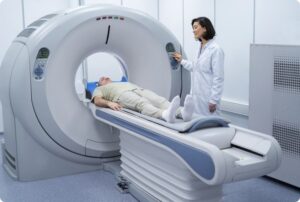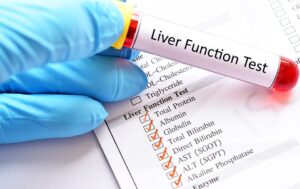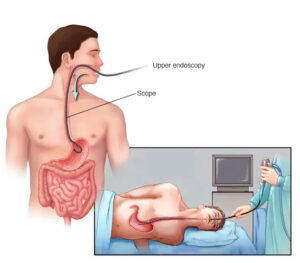Bowel problems can feel like a taboo subject at times. You may spend hours in the loo without much consideration or dismiss persistent stomach pain as the result of a bad meal. Talking about such issues with a physician can be intimidating, even humiliating. However, these symptoms may indicate a more serious condition, such as Irritable Bowel Syndrome (IBS), if they persist.
IBS affects millions of people globally and is a prevalent yet frequently misunderstood ailment. We need to recognise the warning signs and have an honest conversation about it. If you’ve been experiencing stomach pain and are unsure if you may have IBS, this article will help. To help you take the first step towards alleviation, let’s examine the signs, causes, and remedies. Concerned about your symptoms? Visit the Gastro Clinic today and let’s find a solution together.
What is IBS?
The large intestine is the primary organ affected by the chronic digestive disorder known as Irritable Bowel Syndrome (IBS). Although the precise aetiology is yet unknown, stress, gut sensitivity, and modifications in intestinal motility are frequently mentioned. Although IBS is not fatal, if you don’t manage your symptoms, they can have a major negative influence on your quality of life.
Key Symptoms of IBS You Shouldn’t Ignore
The first step in identifying IBS is comprehending its symptoms. Some of the most typical signs are as follows:
- Abdominal Pain and Cramping
One of the main symptoms of IBS is chronic pain or cramping, generally in the lower abdomen. After a bowel movement, this discomfort usually goes away, but it can recur at any time. - Changes in Bowel Habits
IBS frequently interferes with your bowel routine; some suffer from diarrhoea (IBS-D), others from constipation (IBS-C), and many suffer from an uncomfortable combination of both (IBS-M). - Bloating and Gas
Regardless of your diet, you may feel as though your stomach is always full or swollen. - Mucus in Stool
If you notice mucus in your stool, it may be a sign of IBS; this symptom often goes hand in hand with irregular bowel movements and may go unnoticed. - Fatigue and Sleep Disturbances
IBS can have an effect on your general health in addition to your digestive system. People who have the illness often describe chronic weariness and sleep difficulties.
Triggers That Can Worsen IBS Symptoms
There are several things that might cause IBS symptoms, such as:
- Dietary Decisions: Foods that are heavy in fat, dairy, and certain carbs (FODMAPs) can make IBS worse.
- Stress: Anxiety and emotional stress frequently exacerbate symptoms, emphasising the link between the stomach and brain.
- Hormonal Changes: There may be a hormonal connection because many women experience symptom flare-ups throughout their menstrual periods.
- Drugs: Antibiotics and other drugs may alter gut flora and exacerbate symptoms.
How is IBS Diagnosed?
It is essential to see a gastroenterologist if you think you may have IBS.
- Reviewing your medical history and symptoms.
- Doing a physical examination.
- Using procedures like stool analysis, blood testing, or colonoscopies to rule out other disorders.
IBS is frequently diagnosed when all other disorders have been ruled out and your symptoms meet certain standards, such the Rome IV Criteria.
Effective Treatment Options for IBS
While IBS has no known cure, however there are a number of treatments that can help control its symptoms and enhance your quality of life:
- Dietary Modifications
Finding and avoiding trigger foods with the help of a dietitian can have a profound impact. For many IBS patients, low-FODMAP diets work especially well. - Handling Stress
Stress and its effects on the gut can be lessened by incorporating relaxation methods like yoga or mindfulness. - Drugs
Your doctor might suggest antispasmodics, laxatives, or antidiarrhoeal drugs based on your symptoms. Antidepressants may occasionally be recommended to control gut-brain connection. - Probiotics
Including probiotics in your regimen can help your gut flora return to equilibrium, which may lessen symptoms like gas and bloating. - Lifestyle Changes
Regular exercise, staying hydrated, and maintaining a consistent sleep schedule can support overall gut health and minimise IBS symptoms.
When to Seek Medical Advice
Periodic gastrointestinal distress is common, but severe or ongoing symptoms should never be disregarded. If you have symptoms that interfere with your everyday life, such as blood in your stool or unexplained weight loss, it’s time to see a professional. Regaining control over your health and preventing symptoms from getting worse are two benefits of early intervention.
Start Your Journey to Relief
IBS can be difficult to live with, but you don’t have to do it alone. It is possible to control symptoms and enhance your quality of life with the appropriate strategy. Avoid letting shame prevent you from getting help; your health is too vital to be neglected. Experiencing IBS symptoms? Schedule a consultation with Gastro Clinic today to begin your path to relief.



















